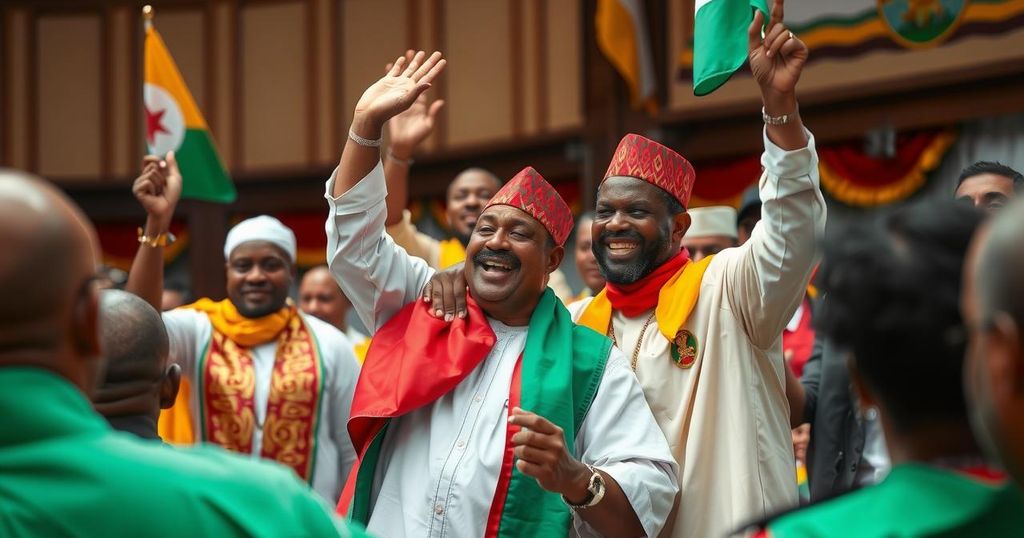Chad’s ruling party, the Patriotic Salvation Movement, has won a majority in the recent parliamentary elections with 124 out of 188 seats, amidst a 51.5% voter turnout. This election represents the final phase of Chad’s transition to democracy after Mahamat Idriss Deby assumed military power in 2021. With over ten opposition parties boycotting the vote, this result raises questions about future governance and democracy in Chad amid ongoing security concerns.
In a significant political development, Chad’s ruling Patriotic Salvation Movement (PSM) party has secured a majority in the newly held parliamentary elections, marking a pivotal point in the country’s transition to democracy. The provisional results indicate that the PSM won 124 out of 188 available seats, amidst a voter turnout of 51.5%. This election represents the first legislative voting process in over ten years and occurs following Mahamat Idriss Deby’s assumption of power as a military leader in 2021, following the death of his father, President Idriss Deby Itno.
The parliamentary election, alongside regional and municipal voting, serves as the final step towards a more democratic governance structure for Chad. President Mahamat Idriss Deby has highlighted the significance of this election, asserting that it could initiate an era of decentralization that has long been sought by the Chadian populace. He elaborated on his vision of distributing governance to provincial and municipal levels, which he believes is essential for the nation’s development.
However, the election was marked by a notable boycott from over ten opposition parties, including the influential Transformers party, whose presidential candidate, Succes Masra, was second in line during last year’s presidential race. The leading opposition has yet to release a formal statement regarding the election results. This vote arrives amid pressing security challenges that Chad faces, such as threats posed by Boko Haram and recent tensions with France, its former colonial power.
Chad’s current political landscape is characterized by the transitional shift post-Idriss Deby Itno, who ruled for 30 years until his death in April 2021. His son, Mahamat Idriss Deby, took control and promised to lead the country towards a democratic framework. The parliamentary elections held recently were considered a crucial step in this process. The ruling party’s victory, given the significant boycott from opposition parties, raises questions about the process’s legitimacy and the future of democracy in Chad. Moreover, ongoing security issues add urgency to the need for a stable government.
The recent parliamentary elections in Chad have resulted in a clear majority for the ruling Patriotic Salvation Movement, a development seen as vital for the country’s democratic transition. With a substantial portion of opposition parties abstaining from the elections, the implications of these results may be far-reaching for Chad’s political landscape. As the nation navigates complex security challenges, the effectiveness of the new parliamentary structure will be paramount in defining Chad’s future governance.
Original Source: www.trtworld.com






